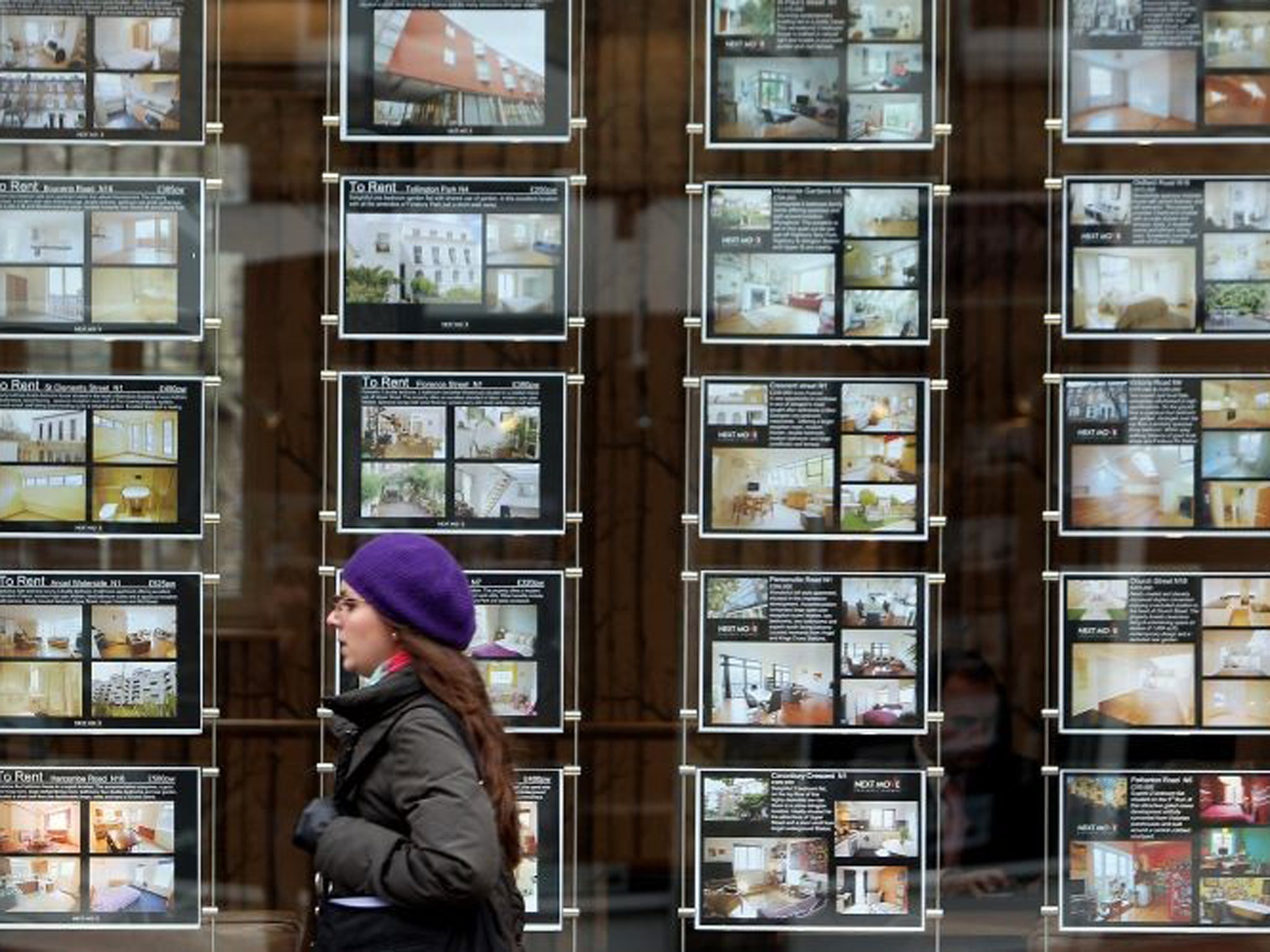London house prices rise by 9.7% sparking fears of new property bubble
Concerns over Government initiatives to kick-start the housing market

Your support helps us to tell the story
From reproductive rights to climate change to Big Tech, The Independent is on the ground when the story is developing. Whether it's investigating the financials of Elon Musk's pro-Trump PAC or producing our latest documentary, 'The A Word', which shines a light on the American women fighting for reproductive rights, we know how important it is to parse out the facts from the messaging.
At such a critical moment in US history, we need reporters on the ground. Your donation allows us to keep sending journalists to speak to both sides of the story.
The Independent is trusted by Americans across the entire political spectrum. And unlike many other quality news outlets, we choose not to lock Americans out of our reporting and analysis with paywalls. We believe quality journalism should be available to everyone, paid for by those who can afford it.
Your support makes all the difference.House prices in London have risen by nearly 10% in the last year, adding to signs of a sharp north-south divide in the market.
A 9.7% increase in prices in London over the year to July helped to push the value of homes across England to a new high of £255,000 on average, the Office for National Statistics (ONS) said.
House prices in London and the South East both raced past their 2008 peaks and stood at an average of £438,000 and £303,000 respectively, while prices in the East of England and the South West also edged close to their previous highs.
But the UK market was still patchy and while house prices were up by 3.7% year-on-year in England they dropped by 2% in Scotland and 0.7% in Wales.
Prices in Northern Ireland were up by 1.8% year-on-year as the market showed signs of starting a slow recovery after some sharp falls following the economic downturn.
The annual pace of house price inflation picked up across the UK in July to its fastest rate recorded in 2013 so far at 3.3%, taking values to £245,000 on average. Prices rose by 0.3% month-on-month.
Concerns have mounted in recent weeks that Government initiatives to kick-start the housing market such as Funding for lending and Help to Buy are in danger of creating a property bubble, with borrowers over-stretching themselves as access to low-deposit deals returns.
Last week, the Royal Institution of Chartered Surveyors (Rics) suggested that a 5% cap should be placed on annual house price growth to stop any future house price bubble and borrowers taking on too much debt for fear of missing out on a boom.
Matthew Pointon, property economist at consultancy Capital Economics, described London as a "special case", with prime central London in particular seen as a safe haven for overseas buyers to place their cash. He said some areas of London are seeing "bold behaviour" from buyers.
In the short term, a shortage of homes on the market in London is likely to spell further price gains in the capital, he predicted.
Peter Rollings, chief executive at London-based estate agents Marsh & Parsons, described the London market as telling "a different story" to the rest of the UK.
He said: "The huge demand for property in the most desirable parts of the capital, from both UK and overseas buyers, is helping to push prices higher.
"In the three months to June, we recorded 11% more buyers entering the market in competition for 14% fewer properties. Property is changing hands in record time and for close to the asking price."
At £132,000 on average, house prices in Northern Ireland are still 49% below a previous peak recorded in 2007. Prices in Scotland are around £182,000 and are sitting 6% below their previous high, which was recorded in 2008.
House prices in Wales are 7% below their 2008 peak, and currently stand at £160,000 on average.
Richard Sexton, director of e.surv chartered surveyors, warned that rising house prices in some areas threaten to price some people trying to get on the property ladder out of the market at a time when households are still under pressure from high inflation and stagnant wages.
He said: "If the Government wants to make housing more affordable - and avoid inflating another property bubble - then it needs to encourage more house building."
Housing Minister Mark Prisk said: "New housing supply is at its highest level since 2008, with 334,000 new homes built in England over the past three years, including 150,000 affordable homes.
"Over the coming months we will unlock construction for thousands of new homes at stalled sites, and our £1 billion Build to Rent fund will help build a bigger, better private rented sector with more choice and quality for people in the housing market."
PA
Join our commenting forum
Join thought-provoking conversations, follow other Independent readers and see their replies
Comments